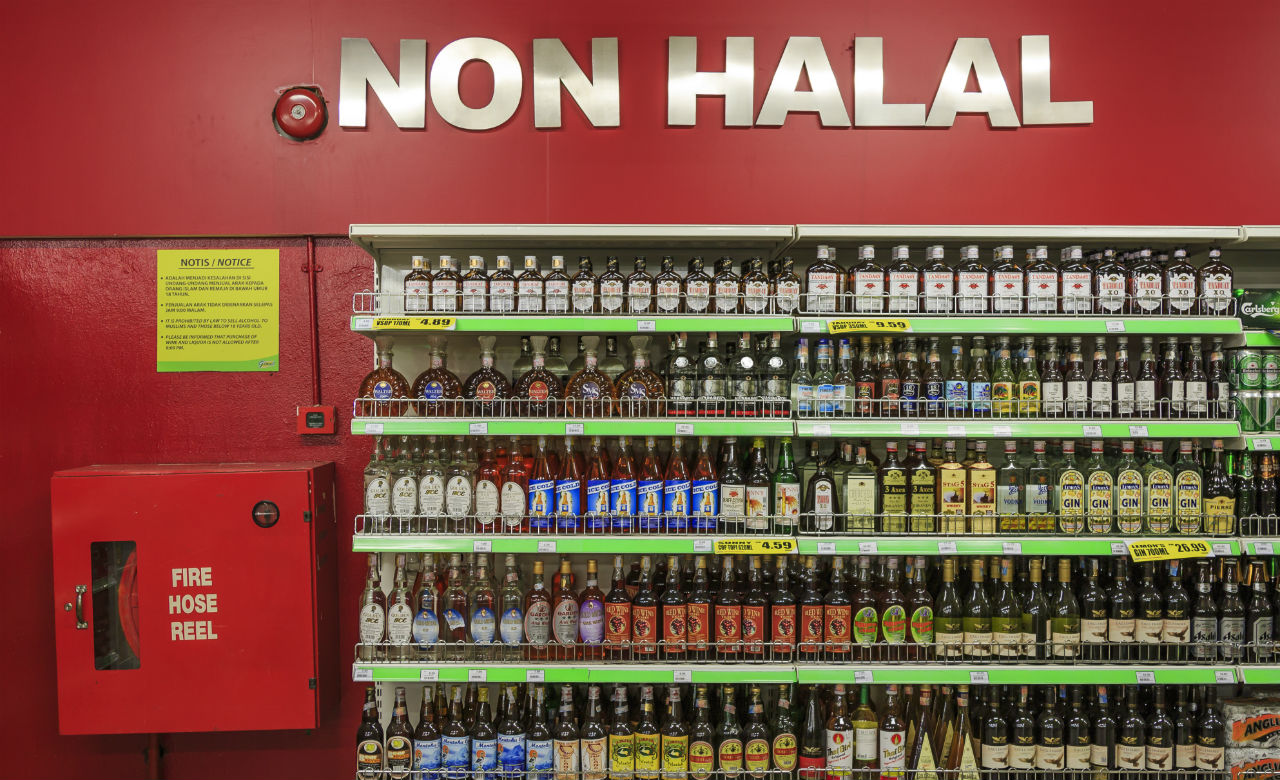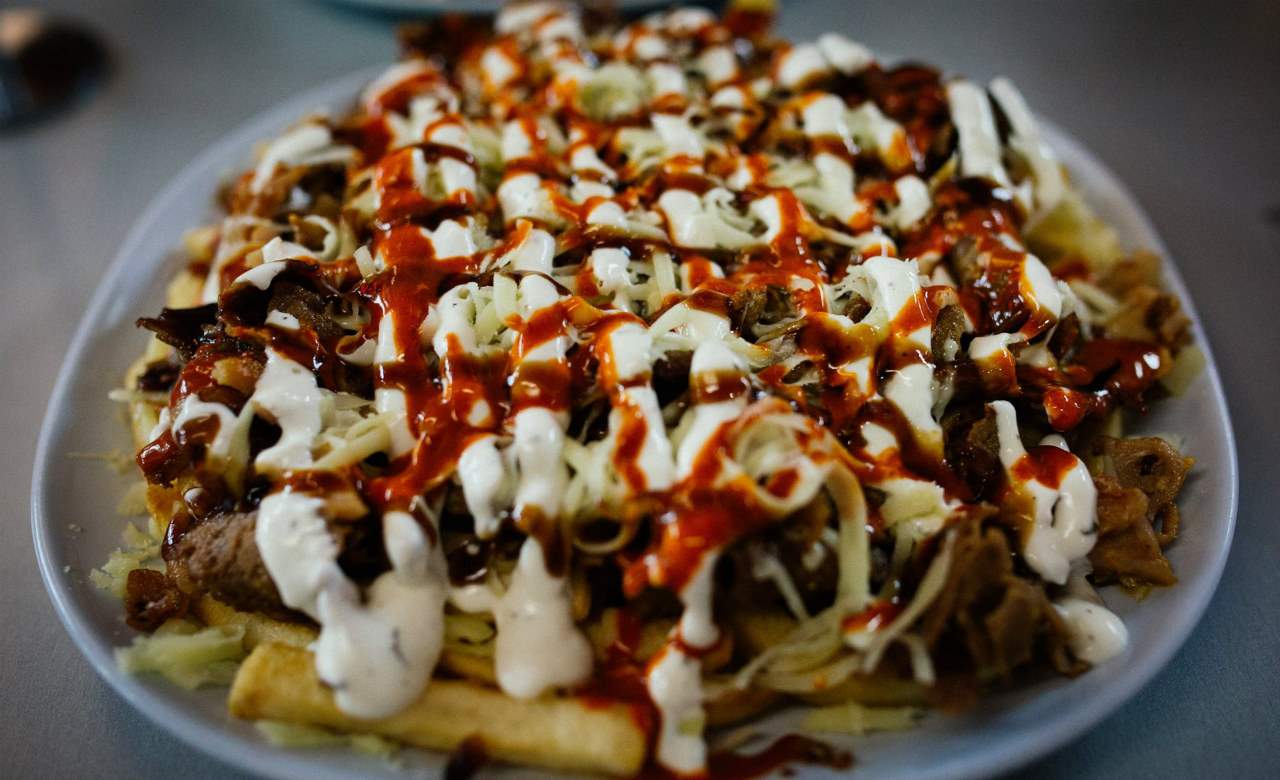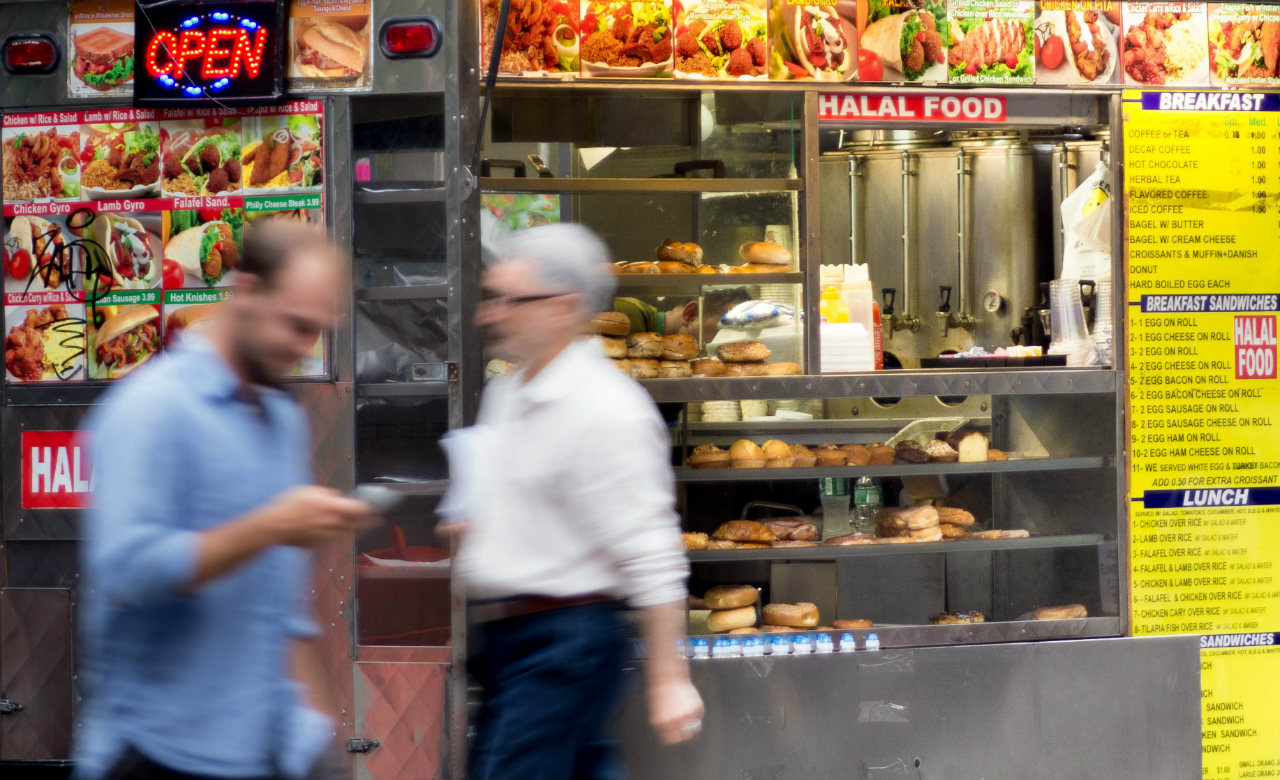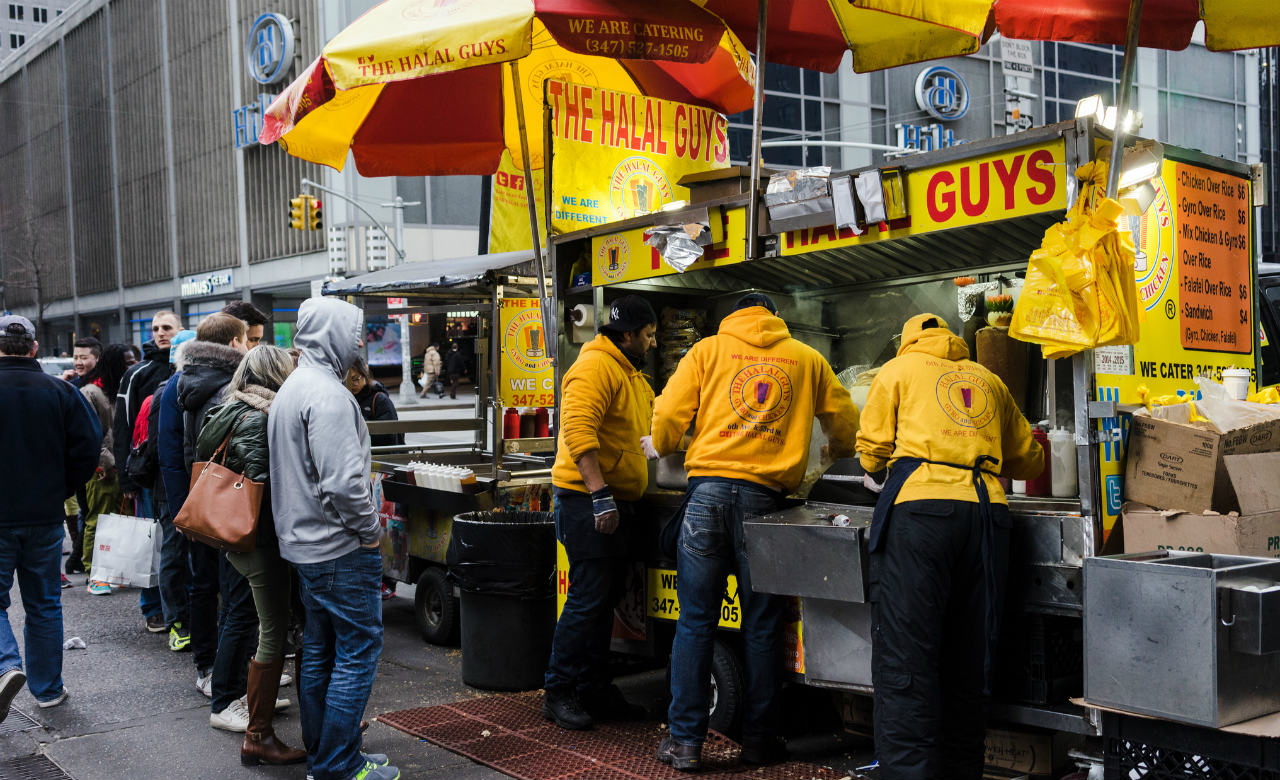What Is Halal Certification and What's All the Fuss About?
Let's set the facts straight.
Halal food, and the certification around it, has popped up in the Australian news a lot lately — mostly in the form of straight-up racist commentary that has no basis in fact. Most recently, newly elected Australian senator Pauline Hanson, threw a childish fit on Saturday after senator Sam Dastyari offered to buy her a Halal Snack Pack (HSP) as jesting congratulations.
For those that don't know, an HSP is a greasy concoction of hot chips, kebab meat (chicken and/or lamb) and cheese, covered in sauces, including the 'Holy Trinity' of garlic, chilli and barbecue sauce. This dish is so popular among uni students that the Halal Snack Pack Appreciation Society (HSPAS) is nearly 150,000 members strong.
Hanson has repeatedly made fact-less allegations that funds made from halal certified food goes directly to fund terrorism. Her blatantly discriminatory remarks, which have been repetitively disproven and shown to have no factual research behind them, got us thinking — what is halal certification really all about? We're bringing you some plain old facts on the subject, because knowledge is power.
WHAT IS HALAL FOOD?
- Halal (حَلَال) is an Arabic word that means 'permissible' or 'allowed' and refers to the dietary restrictions of the Muslim law.
- Foods that are explicitly prohibited by the Qur'
an, and are therefore not halal, include: - Alcohol (including used in food)
- Meat from carnivorous animals, most notably pigs and dogs
- Any bi-product of carnivorous animals, including lard, gelatine, blood, broth and enzymes (which many non-halal cakes, biscuits and ice-creams contain)
- Meat of an animal that has died of natural causes or as a result of strangling or beating
- All foods that do not meet these above restrictions are considered halal (that includes fruits, nuts and vegetables, to name a few).

WHAT IS HALAL CERTIFICATION?
- Halal certification denotes to the consumer that the food is certified to fit the dietary restrictions of halal, much the way organic and gluten-free products must be certified.
- In order for a food to be certified as halal, it must be:
- Free from any meat or bi-product from a carnivorous animal
- Slaughtered with a Muslim person present and in compliance with Islamic rites
- Processed, manufactured and stored by using equipment that has been cleaned according to Islamic law (e.g. not cleaned with alcohol or in proximity to carnivorous animal bi-product).

CEphoto, Uwe Aranas.
OTHER USEFUL HALAL FACTS
- Food that is already halal is not changed during the certification process; it is simply certified to show that it has not broken any of the dietary restrictions within halal eating methods.
- Hundreds of Australian food products exist as halal certified, including Vegemite, Nestle Crunch bars, Maggi Two Minute Noodles and Kellogg's Coco Pops.
Essentially, the animal used for food needs to be slaughtered humanely and using clean instruments that are namely pork and alcohol free. If you're thinking logically about it, a halal certification is similar to a food being certified as organic or gluten free — it simply tells a person who has specific dietary restrictions that they are able to eat the food and is actually very inline with standard ethical eating practices.
ABC News Fact Check recently assessed Hanson's claims that halal certification directly results in funding terrorism and could find "no evidence whatsoever ... that money from halal certification has ever flowed to terrorist groups." They also debunked her claims that halal certification is a $3-trillion dollar industry — in fact, most responsive manufacturers claimed that their certification cost was negligible, even as little as $1-$2K per year.
What is true is that the halal food industry is estimated to be in excess of $1-trillion. This means that the world economy profits in the trillions off of manufacturing halal food.
When it comes down to it, all the fuss is really about nothing but and Hanson's comments are just an embarrassment. Halal food is embraced around the western world and is specifically prevalent in New York City, where halal carts are seen on every corner. The city's famous Halal Guys, which is the "longest running and best known street cart in New York City", serves the cart equivalent of the HSP and is an integral part of the food scene in the city. They're also donating $30,000 to LaGuardia Community College this year, which sure doesn't sound like global terrorist activity to us.
Sources: Australian Food & Grocery Council, The New York Times, SMH, ABC Fact Check, Junkee, Merriam-Webster.
Image: Halal Snack Pack Appreciation Society (HSPAS).







